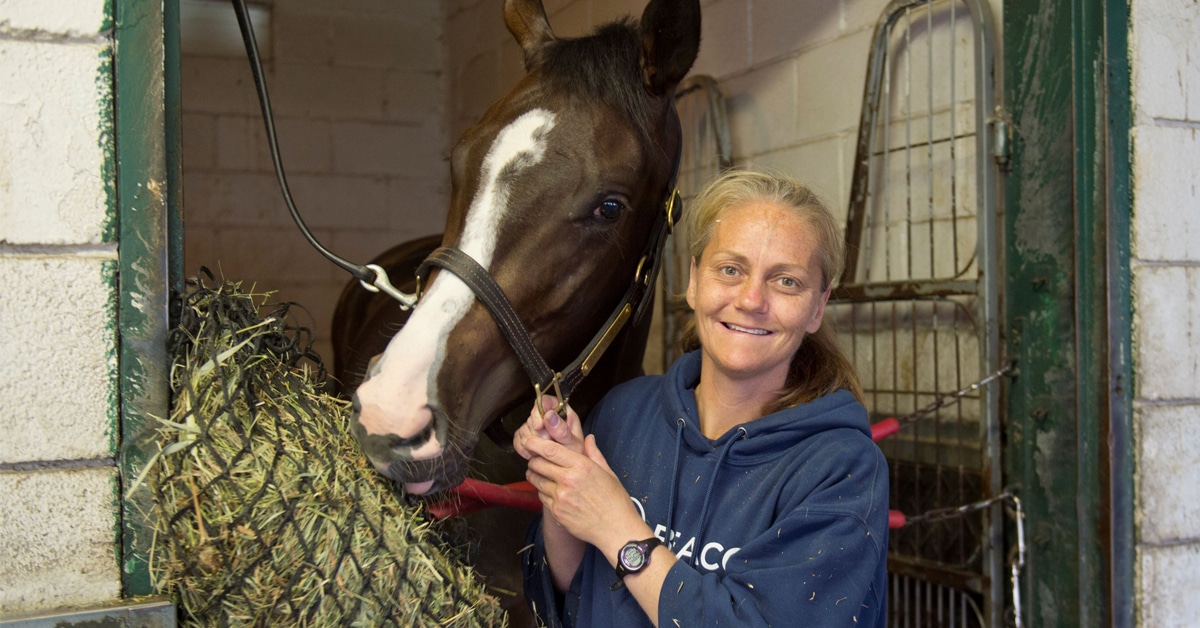The newborn foal is a remarkable animal, born with the ability to stand and run within hours of birth. Despite this, they are more at risk than adult horses for certain medical conditions, including sepsis. Sepsis is a major cause of illness and death in newborn foals and is caused by overwhelming inflammation in response to invasion of the bloodstream by bacteria. The septic foal is also at risk for infection at specific locations in the body, including the lungs, joints, growth plates, gastrointestinal tract, and central nervous system.

Septic foals are often excessively lethargic and can be unable to stand without encouragement and assistance. Good nursing care is an essential part of treatment.
Unlike people, foals do not receive antibodies from the mare during gestation. They rely on absorption of antibodies from the mare’s colostrum—the first milk that is produced following birth. Colostrum is rich in antibodies, which are absorbed across an “open” gut in the first twelve hours of the foal’s life. These antibodies help provide protection against infection until the foal begins to make antibodies of its own. This open gastrointestinal tract leaves them more susceptible to infection as bacteria can move from the GI to the bloodstream. Other potential sites of infection include the respiratory tract, umbilicus, and dam’s reproductive tract during gestation.
The biggest risk factor for sepsis is failure to receive enough antibodies from colostrum within the first 12 hours of life. This can be due to the foal not standing and nursing appropriately, or production of poor-quality colostrum by the mare. Failure of passive transfer (FPT) can be detected by your veterinarian and is one of the most important reasons to have newborn foals evaluated during the first 24 hours. A blood sample can be used to measure antibody or IgG as a marker of antibody transfer. FPT can be partial or complete, and both can leave the foal susceptible to infection. Additional risk factors include maternal illness, prematurity, and poor environmental conditions. Foals that experience FPT can receive alternate sources of antibodies; intravenous plasma transfusion is the most common and can be provided by your veterinarian, if needed.
As with most foal diseases, the sooner treatment is initiated, the better. Early detection of clinical signs and rapid intervention are key. Any foal not standing within an hour of birth and nursing well within two hours of birth should be immediately evaluated by a veterinarian. Initial clinical signs of foals that develop sepsis can be mild and non-specific including decreased nursing, lying down a lot, and diarrhea. The foal’s gums and whites of the eyes may become bright red, and the foal may have a fever or abnormally low temperature. Limbs and ears may be cool to the touch and the foal may become unable to stand as the illness progresses to septic shock.

Abnormal coloration of the mucous membranes is a common clinical sign associated with sepsis.
Treatment of septic foals is often intensive and can require hospitalization in severe cases. Antibiotics are the mainstay of treatment, and a broad-spectrum approach is essential at onset to treat for common bacterial culprits. Longer courses of antibiotics may be necessary in foals that develop localized signs of infection. Intravenous fluids and a nutritional plan are also important aspects of treatment in severe cases. Good nursing care is essential for successful treatment in these patients as they are often unable to stand; unable to handle enteral feeding including difficulties with swallowing, and are prone to urine scald and bed sores.
Survival rates have improved with advancements in treatment and are reported to be as high as 72% at discharge. Factors associated with decreased survival rate include duration of illness prior to admission, inability to stand at presentation, severity of clinical signs, and certain blood work abnormalities. The development of infection of one or more joints can also decrease overall survival rates in these foals.
Prevention can be the most important aspect of ensuring health of newborn foals and includes maintaining a clean foaling environment, ensuring adequate nursing of good-quality colostrum, treating the umbilicus appropriately, and having your veterinarian evaluate your foal within 24 hours of life. None of these can completely eliminate the risk of sepsis – early recognition of illness and rapid treatment by your veterinarian is essential for a good outcome.
The Latest










